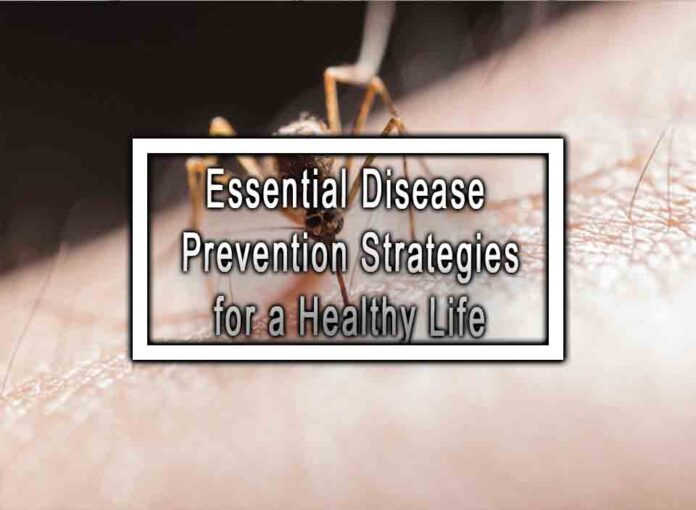Prevention is key to maintaining a healthy life and reducing the risk of various diseases. Here are some essential disease prevention strategies to consider:
1. Vaccinations:
Stay up-to-date with recommended vaccinations for various diseases, including influenza, pneumonia, hepatitis, HPV, and others.
2. Regular Health Check-ups:
Schedule routine check-ups with your healthcare provider to monitor your overall health and detect any potential health issues early.
3. Healthy Diet:
Adopt a balanced and nutritious diet that includes a variety of fruits, vegetables, whole grains, lean proteins, and healthy fats. Limit processed foods, sugary snacks, and excessive salt and saturated fats.
4. Physical Activity:
Engage in regular physical activity, including aerobic exercises, strength training, and flexibility exercises. Aim for at least 150 minutes of moderate-intensity or 75 minutes of vigorous-intensity aerobic activity per week, along with muscle-strengthening activities.
5. Don’t Smoke:
Avoid smoking and exposure to secondhand smoke. Smoking is a major risk factor for various diseases, including lung cancer, heart disease, and respiratory issues.
6. Limit Alcohol Intake:
If you choose to drink alcohol, do so in moderation. Excessive alcohol consumption can lead to liver disease, heart problems, and other health issues.
7. Manage Stress:
Practice stress-reduction techniques, such as meditation, mindfulness, yoga, or hobbies that help you relax and unwind.
8. Sleep Well:
Aim for 7-9 hours of quality sleep each night. Poor sleep can weaken the immune system and contribute to various health problems.

Remember, disease prevention is a lifelong commitment, and small, consistent actions can have a significant impact on your overall health and well-being. It’s essential to work closely with healthcare professionals and follow their advice for personalized disease prevention strategies based on your individual health status and risk factors.










